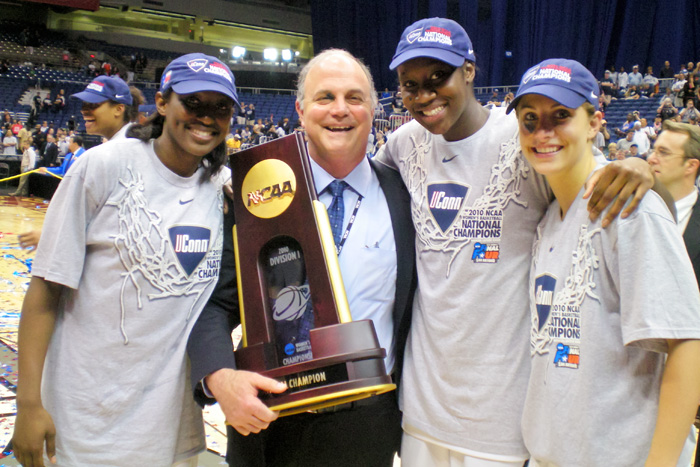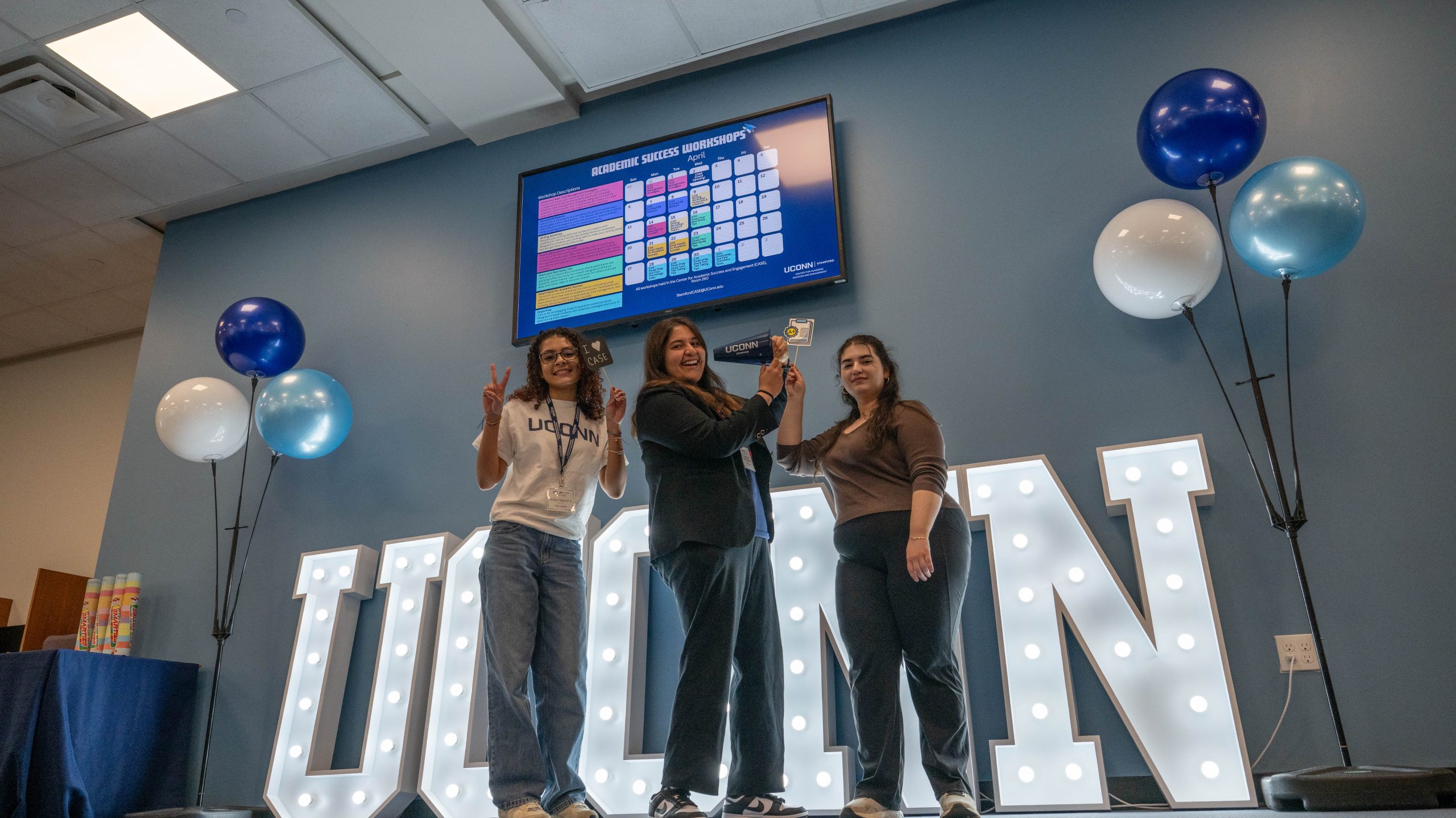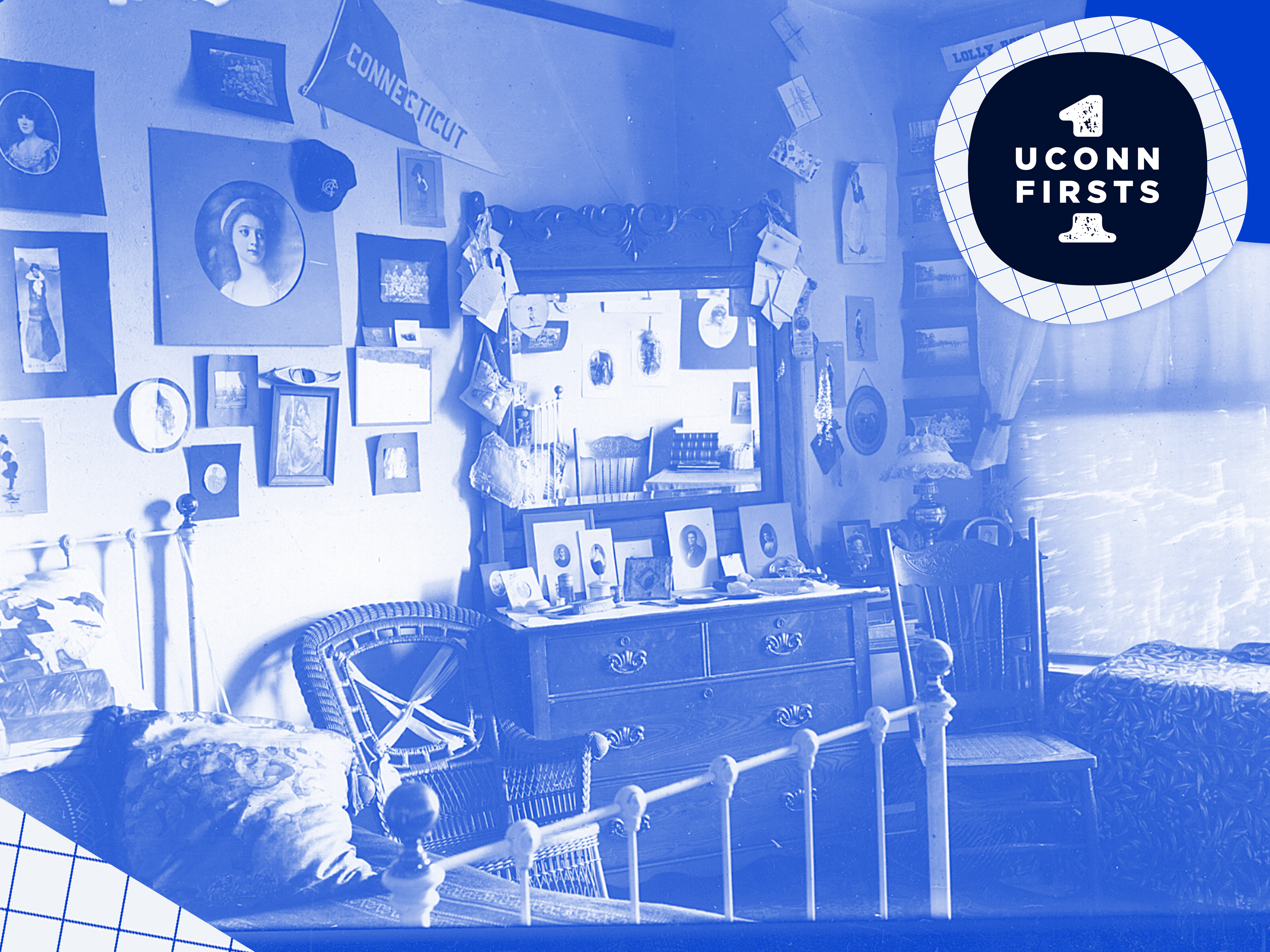
UConn orthopaedic surgeon Dr. Robert Arciero is a busy man. He’s chief of the Sports Medicine Division of the Department of Orthopaedic Surgery at the Health Center, director of its Orthopaedic Sports Medicine Fellowship program, and a team physician for UConn’s basketball, football, hockey and lacrosse teams. He’s also an orthopaedic team physician for USA Hockey, an award-winning researcher and a dedicated family man. So it’s little wonder that, when U.S. News & World Report named him one of the country’s top sports medicine specialists earlier this year (and the only one in Connecticut), he was unaware of it until a colleague sent him the news.
“It was very flattering,” Arciero says, to be ranked among nationally recognized specialists, many of whom he knows well. It was also an honor. “You like to feel that the way you approach people and take care of them and relate to them is important to your peer group. That’s the great thing about sports medicine. It’s not just making a diagnosis or doing an operation well. It’s about relating to the athletes, their families, coaches and trainers. It was a great professional reward to be in that group.”
Arciero came to UConn in 2000 after retiring as a colonel from a 20-year career in the U.S. Army. He served in a combat support hospital during the first Persian Gulf War and was deployed to Saudi Arabia and Iraq for six months to care for wounded soldiers. From 1987 to 2000, he was at the U.S. Military Academy at West Point. The experience prepared him well for a career in sports medicine.
“Cadets and soldiers are always trying to exceed their maximum regarding their extremities, and they get injuries,” Arciero says. As with athletes, “the whole idea is to get them back to performing at a high level.” He also gained experience caring for players on the academy’s four Division I sports teams.
Arciero’s main areas of focus are instability of the shoulder and knee, including shoulder dislocations, rotator cuff problems, and ligament and cartilage injuries in the knee. He was recently named one of the top sports medicine specialists in the country by Orthopaedics This Week. He is a three-time winner of the American Orthopaedic Society for Sports Medicine’s (AOSSM’s) O’Donaghue Award for best clinical research. He and fellow UConn team physician Dr. Augustus Mazzocca won the award for the best research study on arthroscopic rotator cuff repair from the International Society for Arthroscopy, Knee Surgery, and Orthopaedic Sports Medicine. In 2011, Arciero won AOSSM’s George D. Rovere Award for excellence in educating his peers. He is slated to become president of AOSSM in 2014.

(Janine Gelineau/UConn Health Center Photo)
Physician of Champions
Since coming to the UConn Health Center, Arciero has worked closely with many of the elite athletes on the university’s teams. Many of his cases have involved the women’s basketball teams, because women players are especially prone to anterior cruciate ligament (ACL) injuries. Arciero has performed knee surgery on players including Kalana Greene and Tina Charles, now with the Connecticut Sun; UConn sophomore guard Brianna Banks; and fifth-year senior guard Caroline Doty, who came back from no fewer than three ACL surgeries to help the Huskies win the 2013 NCAA Championship.
Doty had already committed to UConn when she severely injured her knee playing soccer as a high school senior. UConn coach Geno Auriemma recommended Arciero, and Doty’s parents drove her to Connecticut.
“We met Dr. Arciero, and he made us feel comfortable right away,” Doty says. “He was a great person and had tons of experience. UConn is the best program, so we figured that since he was the surgeon for the best athletes, we could trust him.”
After successful surgery, Doty was able to play for UConn in her freshman year, until, in January, she once again injured her knee. She saw Arciero and had surgery that week.
Doty recovered and played during her sophomore year, and her team won the national championship. But during the summer before her junior year, she sustained another injury due to incomplete graft healing and possible mild tissue rejection. She returned to Connecticut to see Arciero, who told her he would understand if she wanted to consult another surgeon. She didn’t.

“I told him he was the best there is and that I trusted him completely,” Doty says.
A year after her third surgery, Doty was back on the court, playing in two more seasons on yet another championship team. But she still recalls how much it meant to her that Arciero checked on her regularly after each surgery. Once, as she was just coming out of anesthesia in the recovery unit, she jokingly asked him to marry her. “That’s how much I appreciated all he’d done for me,” Doty says.
Treating the Whole Athlete
Taking care of injured athletes requires more than technical excellence, Arciero says. It requires the ability to collaborate with players, families, coaches, trainers, and others to understand the athlete’s mental and emotional issues and keep them from feeling depressed, disengaged, and isolated while they’re unable to play the sport with which they identify so closely.
“Sports medicine doctors have to be good coaches and help the kids get through it,” Arciero says, “so they don’t feel abandoned, so they know they’re still part of the team. I have to treat the whole patient, not just the ACL injury.”
Although Arciero has won national and international awards for his research, publications, and teaching, he’s clear about what means the most to him.
“If somebody said, ‘You won’t get any awards or publish any more papers, but every patient you take care of is going to have fabulous results,’ I’d be OK with that,” Arciero says. “Taking care of these kids and getting them back to what they love to do, at the same levels, is the single best reward I get.”
Follow the UConn Health Center on Facebook, Twitter and YouTube.


